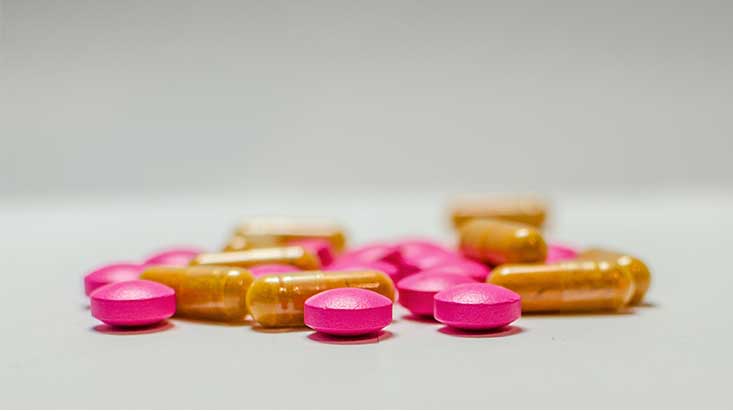How Long Does Adderall Stay In Your System?
Adderall stays in your system for about 50 to 72 hours after the last dose. For drug tests, Adderall has an average detection time of about 1 to 3 days after last use.

Adderall is a brand-name amphetamine that is approved to treat attention deficit hyperactivity disorder, or ADHD. How long Adderall stays in a person’s system can depend on age, body fat, frequency of use, and the formulation of Adderall taken.
In general, Adderall can stay in your system for about 50 to 72 hours after the last use. Drug testing methods can detect the drug for about 3 days after the last dose of Adderall.
Adderall was a significant percentage of over 3 million prescription stimulant medications given to Ohio residents in 2021.
Adderall misuse is popular among adolescents and college students, and healthcare providers may test for Adderall use on drug tests to determine if you are practicing proper drug use.
Drug Tests & Detection Times For Adderall Use
Drug tests can detect a parent drug or its metabolites. Amphetamine, the main active ingredients in Adderall, is itself a metabolite of many stimulant drugs.
A positive test result for amphetamine may be an indicator of recent use of Adderall, Dexedrine, Vyvanse, or other amphetamine drugs. The detection time for Adderall use may vary depending on the type of drug test, and can increase with higher doses of the drug.
In Ohio, employers may have access to urine, hair, saliva, and blood testing for amphetamine use. Ohio healthcare providers may also conduct these tests on patients in an addiction treatment program.
Urine Test
Urine tests can detect Adderall for an average of 3 days after the last dose. Urine tests can be an established testing method for drug abuse with high accuracy.
Substances such as pseudoephedrine, bupropion, and promethazine can reduce the accuracy of a urine test. Before a drug test, patients may be advised to avoid over-the-counter and prescription drugs that contain these substances, such as decongestants and antihistamines.
Saliva Test
Adderall and its metabolites can be present in oral fluid for about 1 to 3 days after the last use.
Food, liquid, and other obstructions in the mouth can reduce the accuracy of an oral fluid test. Patients may wish to avoid eating or drinking before a saliva test for accurate results.
Blood Test
Blood tests can detect Adderall for about 2 days after the last use.
Blood tests can have a smaller detection window compared to urine tests while being more invasive. A blood sample may be performed on a patient showing signs of substance abuse, such as hyperactivity, dry mouth, increased heart rate, or withdrawal symptoms of the drug.
Hair Test
Hair follicle tests can detect Adderall use for up to 90 days after the last dose.
Amphetamines can reach hair through the bloodstream and stay there as hair grows out. This can lead to longer detection times with hair tests compared to other drug tests.
Half-Life Of Adderall
The half-life of Adderall is the amount of time until the drug decreases to half of its peak concentration. At peak concentration, the effects and side effects of Adderall may be at their strongest. After five half-lives, most drugs are virtually eliminated from the bloodstream.
Adderall contains two amphetamine isomers, or variations, known as d-amphetamine and l-amphetamine. These salts have half-lives of about 10 and 14 hours, respectively. They can remain in the bloodstream for about 50 and 70 hours.
Factors such as formulation, age, body weight, and drug abuse may affect the length of time Adderall stays in the body. Adolescents may metabolize the drug faster than adults.
Adderall XR, an extended-release formulation, may have a longer elimination time than Adderall IR, the immediate-release version.
Treatment Options For Adderall Abuse
A positive test result for Adderall use may be indicative of a substance use disorder, where you are unable to stop taking Adderall despite a declining quality of life. Treating a substance use disorder may require professional help from a treatment center.
In Ohio, addiction treatment programs can provide drug rehab and detox schedules, behavioral therapy, mental health services, medication-assisted treatment, and constant access to medical professionals.
To find out if our inpatient amphetamine abuse treatment plan will work for you or your loved one, please contact Ohio Recovery Center today.
- Food and Drug Administration — ADDERALL (CII) https://www.accessdata.fda.gov/drugsatfda_docs/label/2007/011522s040lbl.pdf
- Mayo Clinic Proceedings — Urine Drug Screening: Practical Guide for Clinicians https://www.mayoclinicproceedings.org/article/S0025-6196(11)61120-8/fulltext
- Ohio Automated Rx Reporting System — 2021 annual report https://www.ohiopmp.gov/documents/Annual%20Report%20(2021).pdf

